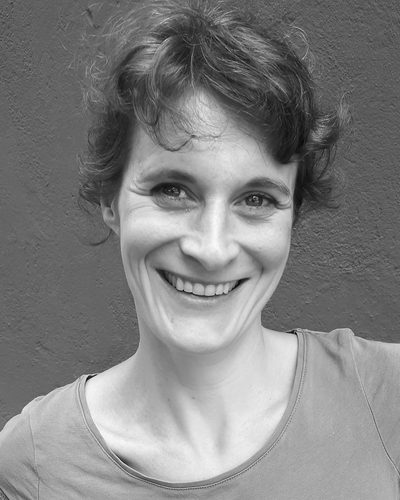Inclusion in Arts and Education
In this minor, you will learn how to overcome barriers through artistic processes and how the arts can create spaces for everyone. Together, you will develop an inclusive concept and implement an interdisciplinary artistic holiday project for interested students in the city of Zurich. You will share your learnings from the process with the public through formats you develop yourself. Your goal: to break down exclusionary structures and create inclusive forms of communication.
Study level
BA and MA
Coursework
15 credits
Teaching language
German
Start of studies
Every autumn semester
Number of study places
Limited
Course
Course content.
In this minor, you will explore how inclusion can be applied in artistic practice. You will question norms, recognize contradictions, and develop new perspectives together with others. You will work closely with artists and experts to break down barriers through interdisciplinary artistic processes. Inclusion in the arts is not a wish but a necessity! As teachers and participants, we learn from each other through discussions, practical exchanges, and diverse life experiences. This way, we create both a theoretical and practical foundation for inclusive artistic work. Based on this foundation, you will develop an interdisciplinary artistic project for children together with your fellow participants at the end of the fall semester. The project will take place in February as a holiday week at the Zurich Conservatory of Music (MKZ) and aims to explore new forms of participation through diverse artistic practices. All schoolchildren in Zurich are invited: in addition to public schools, private and special education schools will also be contacted. The challenge lies in initiating change from within an established institution through artistic diversity. Afterward, you will share your experiences with an interested public. Your goal: to break down exclusionary structures and create, reflect on, and further develop inclusive forms of communication.
This minor, offered by the Theatre discipline in collaboration with the Department of Music and Art Education is taught in German. The combination possibilities of this minor with a major are listed in the PDF below. The minor is offered once a year.
Skills acquired in the course.
– Designing inclusive artistic processes
– Implementing an interdisciplinary project
– Collaborative development of creative solutions
– Understanding the conditions of inclusive artistic work
– Reflection on inclusion, privileges, and one's own practice
– Creating formats that convey your stance and experience from the project to an interested public
– Expertise in contemporary inclusive art projects and working methods.
Admissions requirements.
This minor is aimed at students from the 3rd bachelor's semester onwards, as well as master's students from all disciplines. You are eager to design interdisciplinary projects and take responsibility for inclusive formats. You are interested in developing interdisciplinary artistic practice within a group and exploring inclusion in an open format with schoolchildren.The minor Inclusion in Education and the Arts is also open to continuing education students, who can study it as a CAS (Certificate of Advanced Studies). This allows for an inclusive exchange between professionals and students.
Language skills required.
You need the following languages to take this minor:
– German: to be able to follow a discussion
– German: to actively participate in a verbal exchange
– German: to understand a text
– German: to write a text
Benefits of studying at ZHdK.
– Direct exchange with experts from theory and practice
– Excursions to inclusive art productions
– Interdisciplinary collaboration in the arts
– Theoretical and practical reflection on inclusion
– Intensive project work in cooperation with MKZ, providing insight into institutional structures
– The minor is open to continuing education students, enabling exchange with professionals.
→ More information about this minor (PDF download)
People
Minor Coordination
Major-Minor Programme Model
At ZHdK, students choose a Major. In addition to this core subject, they can choose one or two Minors to deepen or expand their major skills and knowledge across various disciplines. This wide choice of courses is unique in Europe and enables students to develop and sharpen their individual profile.

